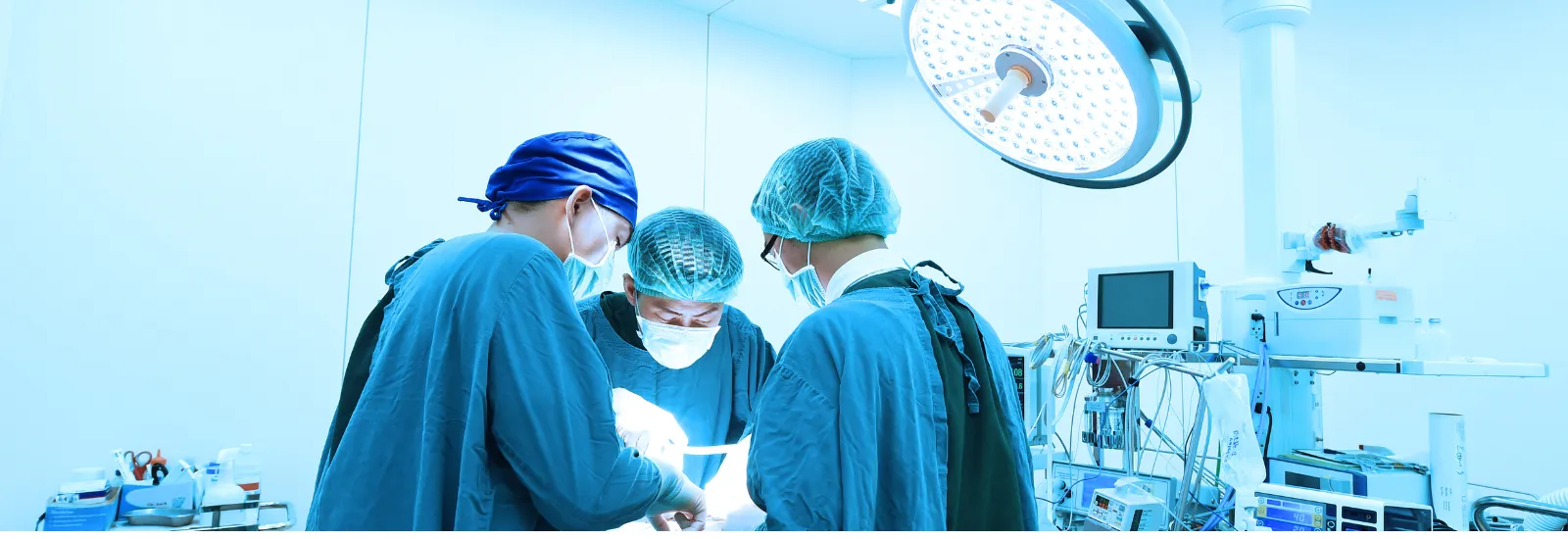
A guide to what happens before, during, and after surgery
It's
natural to feel a bit anxious as the day of your surgery approaches. Knowing
what to expect from your surgical experience can help you feel more at ease.
Presurgical testing
Before
your operation, your surgeon may order some presurgical tests to ensure your
safety during surgery and identify any health risks that may complicate the
procedure. Some common presurgical tests include:
- Blood tests such as a complete blood count, blood sugar, and kidney or liver function
- Chest
X-ray to check lung health
- Electrocardiogram to check heart health
Additional testing may be needed depending on your age, overall health, and the type of surgery you're having.
About anesthesia
If you're receiving anesthesia, your care team will discuss it with you during
pre-surgery testing or at a pre-surgery appointment with your anesthesiologist
or surgeon. There are four main types of anesthesia:
- General
anesthesia is medication that puts you to sleep and keeps you pain
free throughout your procedure.
- Local
anesthesia numbs a small part of the body.
- Regional
anesthesia is medication that numbs the part of the body being
operated on, including spinal, epidural, or nerve blocks. You remain awake
with regional anesthesia, but you may choose to receive sedation to help
you relax.
- Sedation
helps you feel relaxed, and you may doze off during your procedure.
Preparing for surgery
A little advance planning helps ensure your surgical procedure and recovery go as smoothly as possible. Steps to consider:
- Arrange to have someone drive you home after your surgery.
- Ask your care team about any limitations you may face after your surgery and when you can expect to return to work and your usual activities.
- Prepare your home to make it easier to get around and get the rest you need while you recover.
- Take a bath or shower and brush your teeth. Do not apply deodorant, lotion, or makeup.
- If you must take medicine before surgery, do so with a small sip of water.
- Do not smoke, eat, or drink anything after midnight.
- Wear loose, comfortable clothing.
- Leave all valuables at home.
- Remove all jewelry including piercings.
- Do not wear contact lenses; bring a case for your glasses.
- You will be asked to remove any dentures, hearing aids, or hairpieces.
- If you develop a cold, fever, or other illness, contact your care team in case they want to reschedule.
Surgery day check-in
You will need to complete a check-in process before going
to the surgical area. The check-in staff will give you clothing to wear and
place an ID bracelet on your wrist. You will also be asked to sign consent
forms and discuss payment for your procedure. To make check-in easier, be sure
to bring your:
- Health insurance card
- Photo ID
- Health history (list of past medical problems)
- Allergy information
(list all substances known to cause allergic reactions, including foods, drugs,
and skin irritants)
- Previous surgeries (what type and when)
- Medication information (names and dosages of all prescriptions, over-the-counter medicines, and supplements you are currently taking)
During surgery
The surgical area includes a preoperative room outside the
operating room. Here, you will be asked to confirm your name and the type of
surgery you are having. Your care team will check your vital signs including
blood pressure, breathing, and heart rate, and insert an IV line (flexible tube
placed in a vein to deliver medications), usually in your hand or arm. You may
be given medication to help you relax.
In the operating room, your care team will perform a number
of safety checks, drape all areas of your body except for the surgical site,
and clean the area to be operated on. Your care team may include nurses,
surgical assistants, and other clinicians, in addition to your anesthesiologist
and surgeon.
When all is ready, your anesthesiologist will give you the
anesthesia medication. Your surgeon will perform the operation with the
assistance of your surgical care team. The time it takes to complete the
procedure depends on the type and complexity of surgery. After the procedure is
complete, your anesthesiologist will give you medication to reverse the
anesthesia.
After surgery
After surgery, you will be taken to a recovery room. You may feel groggy
or sleepy as you slowly wake up from the anesthesia. Nurses will carefully
monitor your vital signs, including blood pressure, breathing, and heart rate.
How long you stay in recovery depends on what surgery was performed, how
quickly you wake up from anesthesia, and the stability of your vital signs.
If you're staying in the hospital after surgery, you will
be transferred to your room. There, your care team will continue to monitor
your vital signs, check your pain level, give medications as needed, and
provide something to eat or drink when allowed by your surgeon.
If you are having outpatient surgery, you'll be discharged as soon as your care team determines you are ready. Your care team will schedule a follow-up appointment with your provider or surgeon, and you will receive instructions on how to care for yourself at home.
Connect with our team of surgical professionals
at Reid Health.

